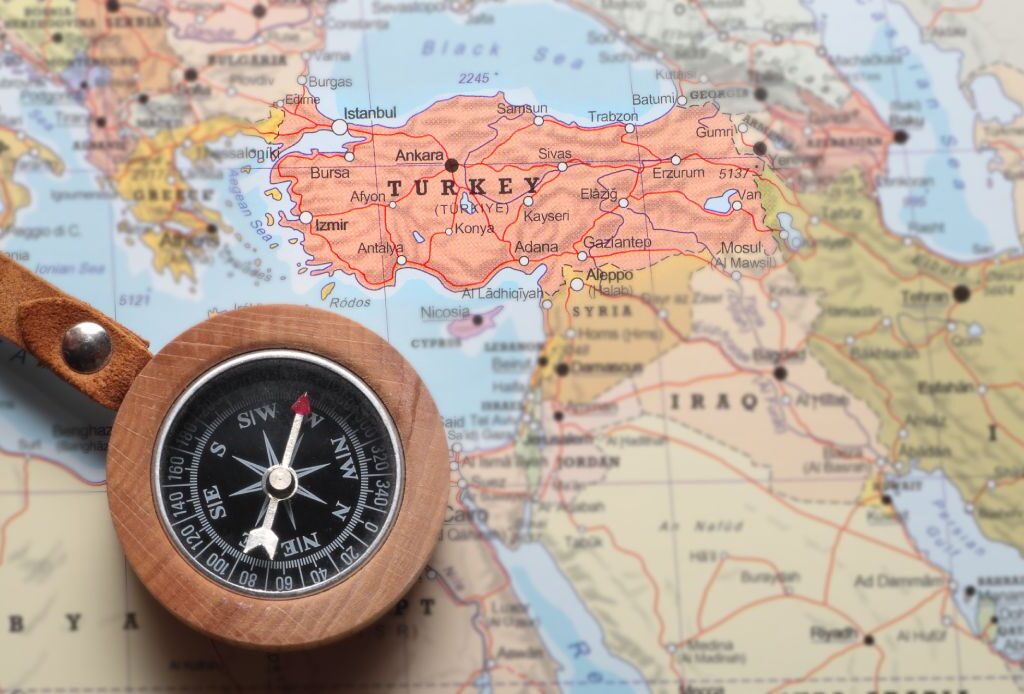Why do people choose Turkey as a destination for medical tourism?
Turkey has become increasingly well-liked as a destination for medical tourists in recent years. The reason behind this trend is that Turkey has one of the best healthcare systems in Europe and offers excellent medical care at a fair price. In addition, Turkey provides medical tourists with all the necessary facilities, such as hotels, eateries, and other businesses. Here are some explanations for choosing Turkey for medical care:

The geographic location of Turkey is advantageous.
Turkey is in a unique geographic position. Turkey is the perfect destination for people who want to receive medical care at a top-notch facility but don’t want to make a long journey because of its location halfway between Europe and Asia. Turkey’s location also makes it easy to travel back and forth between many countries in the world.
It is safe to live in Turkey.
It is safe to live in Turkey. Both crime and terrorism are quite uncommon in Turkey. In Turkey, there are no earthquakes or tsunamis, and air pollution is not a major problem either.
Turkey is a fairly cheap country.
Turkey is a reasonably priced location. Compared to other places for medical tourism, Turkey is less expensive. The cost of many medical tourism packages in Turkey is reasonable; some of them even include lodging, airport transportation, and other services that might be very expensive in other countries, like India, Thailand, or Mexico.
The typical cost of a hotel room per night is from $100 to $200 USD depending on the season and location; the price of a dinner at a restaurant is often between 40 and 60 Turkish Liras, or around $2 to $3 USD per person, depending on the food they select (a bottle beer costs about 2 Euro).

The Turkish government promotes medical travel.
You must be asking why Turkey has access to high-quality healthcare at reasonable costs.
To encourage medical tourism, the Turkish government has taken a number of actions. It has established a formal Medical Tourism Board and is providing financial assistance to facilities that treat patients from abroad. Additionally, the government offers tax benefits to citizens who travel overseas for medical reasons, which draws a lot more visitors from all over the world each year.
Turkish medical history is quite impressive.
Turkey has a distinguished medical history, as you would have anticipated. Hippocrates, the world’s first recorded doctor, was of Anatolian descent despite being born in ancient Greece. The Hippocratic Oath, a code of ethics for medical professionals followed for centuries, was really penned here.
From plastic surgery to psychiatry, obstetrics and gynecology to cardio-vascular disorders, oncological care to ophthalmology, cardiology to urology, Turkey continues to be a global leader in a variety of medical specialties. The list is endless!
Turkey has a large pool of highly educated workers in the healthcare industry.
Turkey has a sizable population of medical professionals, including graduates. Additionally, Turkey boasts a sizable number of medical facilities, institutes, and schools that offer top-notch instruction in the healthcare industry.
Turkey has more than 180 universities, 128 of which are colleges of medicine. Students can select a major based on their preferences, such as dental or plastic surgery aesthetics. After completing their studies at one of these colleges, students can appear for the exam to become doctors, demonstrating that they have completed all prerequisite coursework for providing adequate patient care.
Additionally, there are numerous clinics where people can go for care if they are unwell or injured (like hospital). These clinics’ staff members have sufficient experience to know the appropriate course of action to take for each patient based on their circumstances (elderly persons who cannot walk well need special attention).
Compared to other nations that provide medical care, Turkey offers a superior climate.
Compared to other nations that provide medical care, Turkey offers a superior climate. Warm summers and mild winters are characteristics of Turkey’s temperate climate. In the summer, the daily average temperature is 26°C (78°F), whereas in the winter, it is 10°C (50°F). Among all tourist attractions, it is the only one that has beautiful weather all year long. The average annual rainfall in Turkey is 600 mm, and even during the rainy season, the humidity is moderate.
In Turkey, there are numerous hospitals with JCI certification, which provides information on clinical treatment, patient safety, and industry best practices.
More than 2,500 healthcare organizations in the US are accredited by JCI, a non-profit organization. Its criteria are strict, and it is regarded as the gold standard for healthcare excellence. Hospitals with JCI accreditation are dedicated to offering the best possible treatment.
Hospitals that want to be accredited must go through a thorough evaluation by a group of experts who independently assess their performance in areas like mortality rates, patient safety, medical errors, nurse and physician satisfaction, employee turnover, outcomes data reporting systems, and many other aspects that affect patient safety and the standard of care that hospitals provide.
Turkey has a large number of bilingual medical professionals who are fluent in English and can assist patients in speaking with their doctors during their treatment.
Turkey is a nation with a vibrant cultural history. Turkey is home to many historical sites and has a warm population.
Patients from throughout the world are increasingly choosing Turkey as a destination for medical tourism. It offers a wide range of treatment options, from cosmetic operations to organ transplants, along with high-quality healthcare at significantly lower costs than in most wealthy nations.
The Turkish healthcare system is composed of public hospitals and private clinics that offer insurance to all Turkish citizens, including foreigners who are temporarily or permanently residing in Turkey (for example people who have retired in Turkey).
Easy Appointments
Your appointments will be simple to schedule due to the high patient and physician populations. In fact, getting an appointment right away when you walk into the clinic is quite common. Don’t worry if it’s too soon or if you have other plans that day; you can always change it or cancel it later.
The same is true for rescheduling: there’s no need to freak out if you’re running late and weren’t sure how bad the morning traffic would be! Your doctor will be sympathetic to your situation and assist in rearranging everyone’s schedules so that everyone can be at ease.
Various Treatment Alternatives
There are more than 1500 hospitals in the nation, and each one provides a wide range of therapeutic options. The level of service quality is high, and almost all cities have doctors, nurses, and therapists who speak English. Every language has translators who are experts in translating into the medical field. Russian, Arabic, German, French, and Spanish translators are particularly popular.
Conclusion
We hope you’ve found this article useful and it helps you to make the best decision for your health. If you have any questions, please feel free to contact us.
